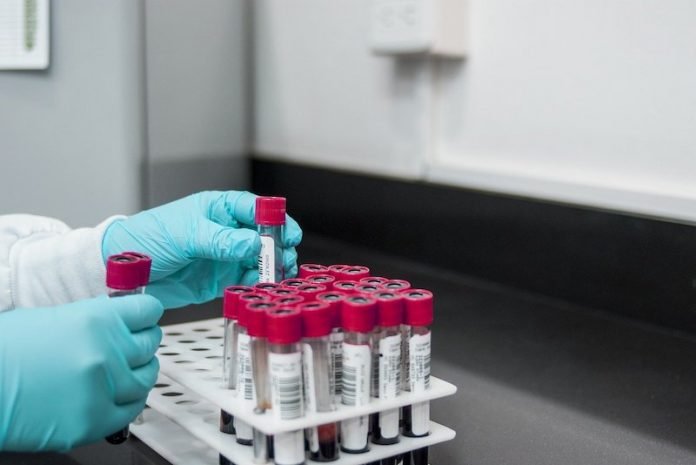
In a new study, researchers found that a new approach to cancer immunotherapy has the potential to be a universal treatment for solid tumors.
They developed and tested the new treatment that works not by attacking the cancer cells themselves, but by focusing on immune system cells that, ironically, feed the tumor and block other immune system cells from destroying it.
So far, the treatment has been tested in human tumor cells in the laboratory and in human tumors in animal models. It has been shown to work in six different tumor types.
The research was conducted by a team at Purdue University.
In the study, the new approach targets immune cells that the body uses to put the brakes on immune response.
In other situations, after an illness or injury, the body employs these immune suppressor cells to stop the normal healing response in order to prevent the response from careening out of control, just as you would use brakes in a car.
But in cancerous tumors, these cells have an unwelcome and disastrous effect: They hit the brakes at the wrong time and stop the body’s own defenses from killing the tumor.
The team says researchers can reprogram the immune cells within the tumor to help kill the tumor instead of allowing these cells to help the tumor grow.
It’s just been realized recently that as a global approach to eradicating a solid tumor, scientists need to also treat the healthy, non-malignant cells in the tumor.
Depending on the type of cancer, 30%-80% of the cells in a solid tumor are not cancer cells and are used in normal functions in other tissues.
The difference—and this is a very important difference—is that after these cells infiltrate a solid tumor mass, they are retrained by the cancer cells to facilitate tumor growth.
In this new technique, an anti-cancer drug that would normally be too toxic for human use is linked to folate, which is a type of vitamin B.
Almost no normal cells have a receptor for the folate, so it passes on through the body, but certain cancer-associated immune cells do.
The researchers use the vitamin folate to target attached drugs specifically to these nonmalignant cells within a tumor mass that, unfortunately, promote tumor growth.
Part of the drug development effort will be to ensure that the drug payload, which would be lethal to a patient by itself, is released solely within the tumor-promoting macrophage cells.
The team says this treatment may prove to be more universally effective than current cancer immunotherapies.
The folate-targeted approach is exciting because it is the first research project that has found a way to target the cells that boost tumor growth in the tumor environment.
The researchers believe this drug has enormous potential to save many lives.
One author of the study is Philip Low, Purdue’s Presidential Scholar for Drug Discovery.
The study is published in Cancer Research.
Copyright © 2020 Knowridge Science Report. All rights reserved.



